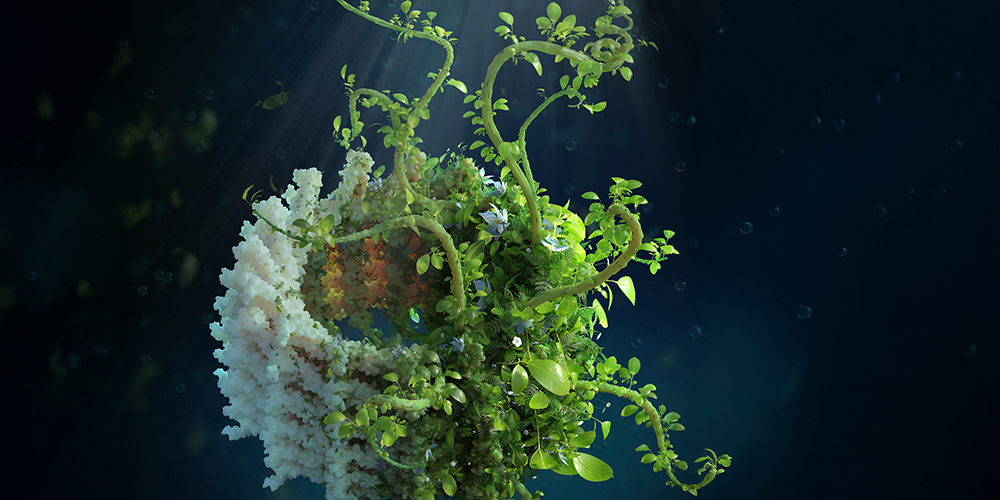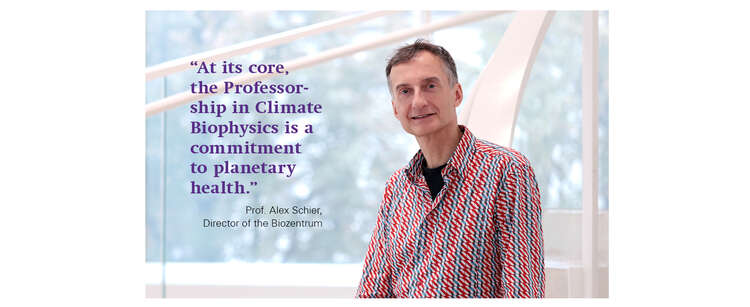Climate change is one of the most pressing issues of our time. By endowing a professorship, the Georg H. Endress Foundation is helping the University of Basel expand its research into the biophysical foundations of climate-related processes, leading to new discoveries that will inspire applications towards climate protection and sustainability.
One potential focus of the Georg H. Endress Endowed Professorship for Climate Biophysics is the molecular mechanisms of carbon dioxide (CO₂) fixation. The high concentration of the greenhouse gas CO₂ in our atmosphere is one of the main causes of global warming. Plants, algae, and certain bacteria can remove CO₂ from the air and convert it into sugar through photosynthesis, but these processes do not work with equal efficiency in all plants.
Biophysics meets climate research
This is where the emerging field of climate biophysics comes in. Researchers at the Biozentrum are already seeking to understand how CO₂ fixation and other environmental processes take place at the molecular level – and how they can be specifically strengthened. These discoveries will open up promising avenues for biotechnological innovations in carbon capture, renewable energy, and climate-resilient crops.
Professor Ben Engel’s research group at the University of Basel’s Biozentrum is conducting pioneering studies into some topics of climate biophysics, including how diatoms are able to absorb CO₂ more efficiently than plants. The researchers were able to show that this is powered by the special molecular architecture of proteins within the algae cells.
With the addition of the Georg H. Endress Endowed Professorship for Climate Biophysics, the University of Basel is positioning itself at the forefront of this exciting and important field.
“We want to understand how life deals with changing environmental conditions at the molecular level. These findings help expand our basic knowledge of photosynthesis, biocatalysis, and biological CO₂ storage. They could also provide new approaches for developing organisms that can better adapt to the Earth’s future climate,” explains Professor Alexander Schier, Director of the Biozentrum, University of Basel.
To achieve this, researchers at the Biozentrum are using cutting-edge methods such as cryogenic electron tomography, which enables them to dive deep into cells and visualize their structures at a previously unobtainable resolution. In addition to the high-tech infrastructure, the new professorship will also benefit from the wide-ranging expertise at the University of Basel – particularly in structural biology and biophysics, but also in plant physiology, ecology, and environmental history.




